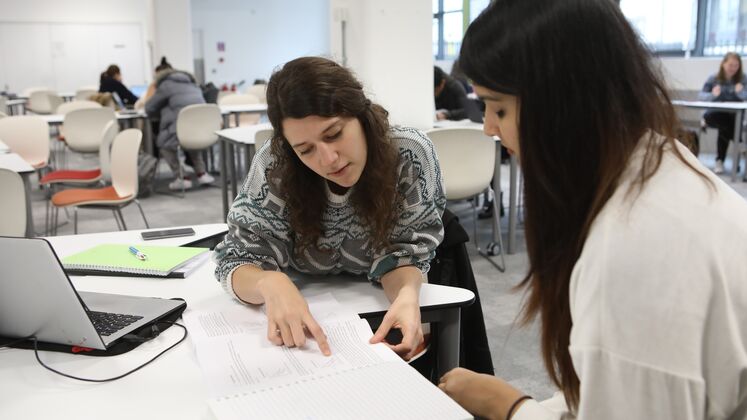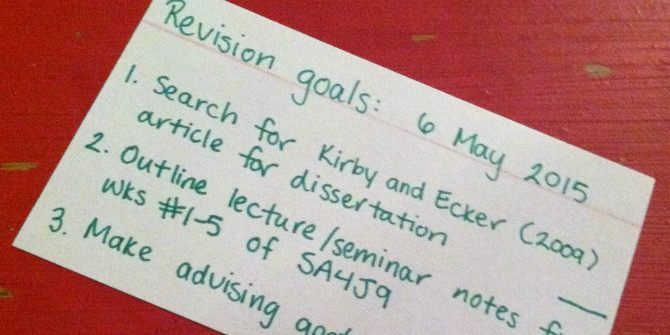Doing a PhD, Master’s or undergraduate degree is hard. Many students experience anxiety, imposter syndrome, and needlessly burden themselves with stress while severely neglecting their self-care. For those of us with serious or concerning issues there is help available at LSE Student Counseling Service.
But for many, counselling might not be what you are looking for but it is also not necessary to suffer in silence through the struggles of being a student. Mentorship can be an effective means of helping to address many of the stresses of studentship. Now mentorship is often an overused term and many people will immediately be seized by social anxiety at the idea of seeking out a mentor. The good news is that mentorship is not actually all that intimidating and being a mentor can often serve to address many of the same anxieties a mentee suffers from. The key is the state of mind.
Regardless of your level of study, you are at the London School of Economics and Political Science, an internationally renowned institution. So take a moment and feel that accomplishment. It is important to pause to think you have done this! Then look ahead of you. There are other students many of whom share your interest and have experienced your exact same struggle. Reach out to them and see if you can build a relationship.

More experienced students, junior faculty, and senior faculty are often very willing and open to giving advice having discussions and serving as mentors in a very casual manner. At the same time look behind you. There are a number of students coming up who are experiencing the same anxieties and struggle you did reach out to them and offer advice, being willing to listen and talk.
Often the phrase I had a very similar experience is a massive relief to someone’s psyche. Because they see someone like them lived through this thing they feel like they are drowning in. Unburdening, mutual venting of frustrations, and advice on how to take steps in the right direction can be shared in brief and highly informal interactions but massively benefit both parties.
People are strengthened when sharing their mutual experiences and it reminds both the mentor and mentee of what they have accomplished and what they can accomplish. Now obviously despite my advice about informal and mutually beneficial mentorship, if you are interested or open to a more formal scheme it is wise to seek them out. I personally participate in a mentorship scheme for neurodiverse individuals. My mentor and I clicked immediately over shared experiences of dealing with our learning difficulties. For someone who previously felt stigmatised by their disability, having such a mentorship scheme was a huge boost to my confidence and self-esteem, and made me reflect on what I could do to help other students.

This blog post is part of that. Too many of us try to tough out difficult or stressful situations and go it alone. When the simple act of reaching out for each other can be a massively beneficial change in our situation. That said it is also important to discuss what makes a good mentor and mentee.
Good mentors are:
- Patient and willing to listen then respond.
- Not judgmental. Your goal is to help your mentee not make them feel like they are meeting some expectations.
- Respectful. A mentee has come to you for advice it is your duty to respect their feelings, time, and views.
- Fallible and honest. You don’t need to know all the answers or pretend you though. If you don’t know something don’t fake knowing it – be honest and upfront.
- Dedication, actively reach out to your mentee even outside of scheduled sessions and let them know you are there.
- Good mentees are:
- Patient and willing to listen to advice and share their concerns and problems openly and honestly.
- Respectful. A mentor has taken time out of their schedule to help you. Some people need more help than others and some need help in a crisis, but be mindful of your mentor’s time and schedule. Make your interactions productive and time-efficient.
- Open-minded. Having an open mind means listening to advice and being willing to change your approach. If you want someone who will just praise you you’re not really looking for a mentor.
- Dedication. Make sure to stay in regular contact with your mentor even if it is just for a casual chat.
Mentorships done right can be a very reassuring and empowering experience for both parties, but a lack of mutual respect and support by one or both parties risk it becoming a very negative experience. Society, after a long hard slog, is accepting the need to be upfront and address challenges to mental health. Looking to be a mentor as well as a mentee can help with that and make everyone’s tomorrow a little bit brighter.





